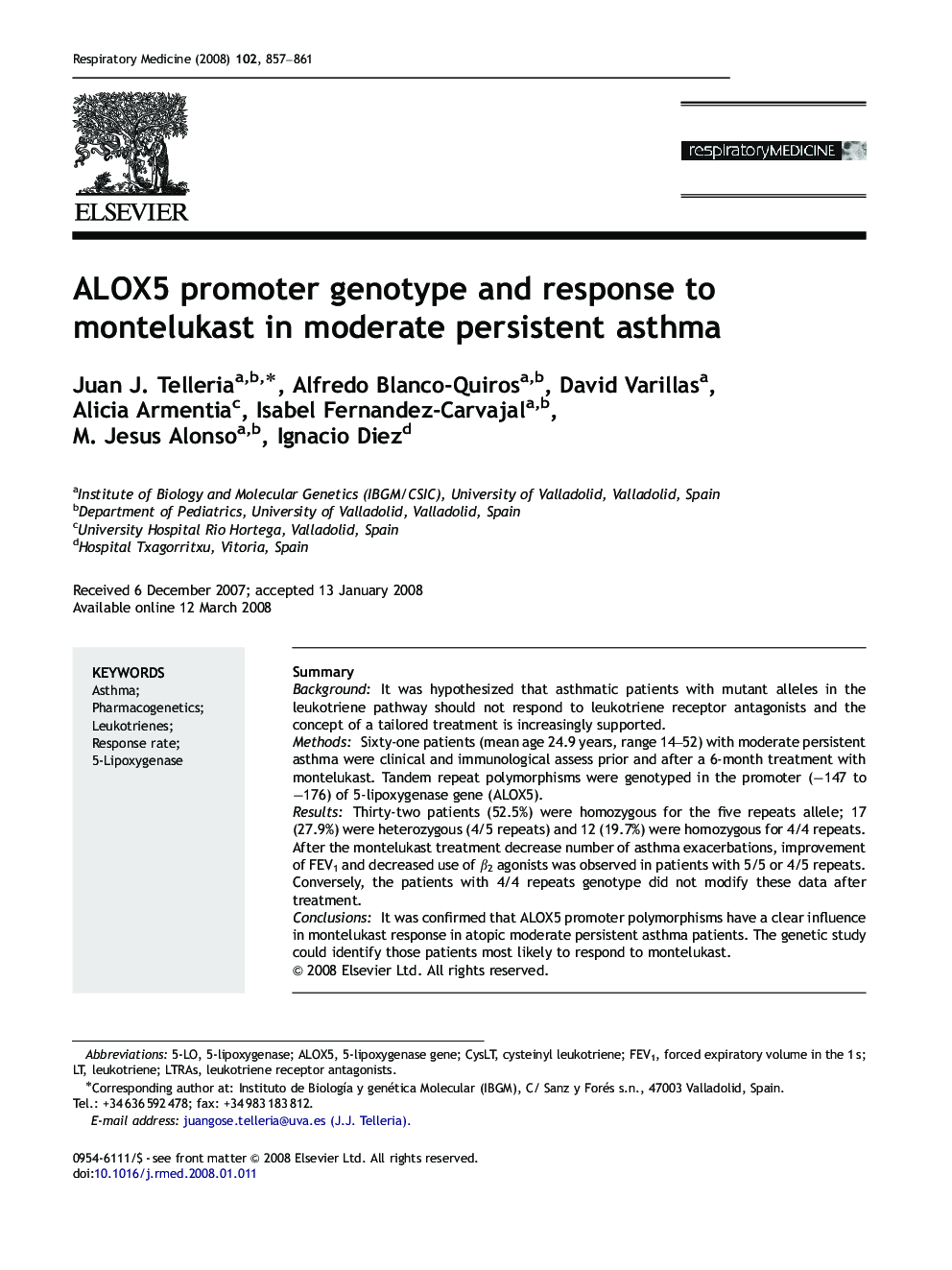| Article ID | Journal | Published Year | Pages | File Type |
|---|---|---|---|---|
| 4212402 | Respiratory Medicine | 2008 | 5 Pages |
SummaryBackgroundIt was hypothesized that asthmatic patients with mutant alleles in the leukotriene pathway should not respond to leukotriene receptor antagonists and the concept of a tailored treatment is increasingly supported.MethodsSixty-one patients (mean age 24.9 years, range 14–52) with moderate persistent asthma were clinical and immunological assess prior and after a 6-month treatment with montelukast. Tandem repeat polymorphisms were genotyped in the promoter (−147 to −176) of 5-lipoxygenase gene (ALOX5).ResultsThirty-two patients (52.5%) were homozygous for the five repeats allele; 17 (27.9%) were heterozygous (4/5 repeats) and 12 (19.7%) were homozygous for 4/4 repeats. After the montelukast treatment decrease number of asthma exacerbations, improvement of FEV1 and decreased use of β2 agonists was observed in patients with 5/5 or 4/5 repeats. Conversely, the patients with 4/4 repeats genotype did not modify these data after treatment.ConclusionsIt was confirmed that ALOX5 promoter polymorphisms have a clear influence in montelukast response in atopic moderate persistent asthma patients. The genetic study could identify those patients most likely to respond to montelukast.
